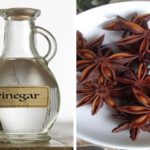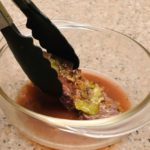Most people tend to discard corn cobs after consumption, believing they serve no further purpose. However, there are numerous creative ways to reuse corn cobs, and their versatility may surprise you. Let’s explore some practical and innovative ways to make the most of corn cobs.
1 Absorb Kitchen Odors
During cooking, odors can permeate the surroundings if your kitchen lacks an exhaust fan. Grease and smoke can also cause unsightly stains on your walls. In this case, consider using dried corn cobs as a natural and effective odor absorber.
Simply leave the dried corn cobs in your kitchen overnight, and you’ll be amazed to find that the unpleasant odors have disappeared by morning. You may also notice that the corn cobs have turned from white to a brownish-black color due to their remarkable ability to absorb moisture and impurities.
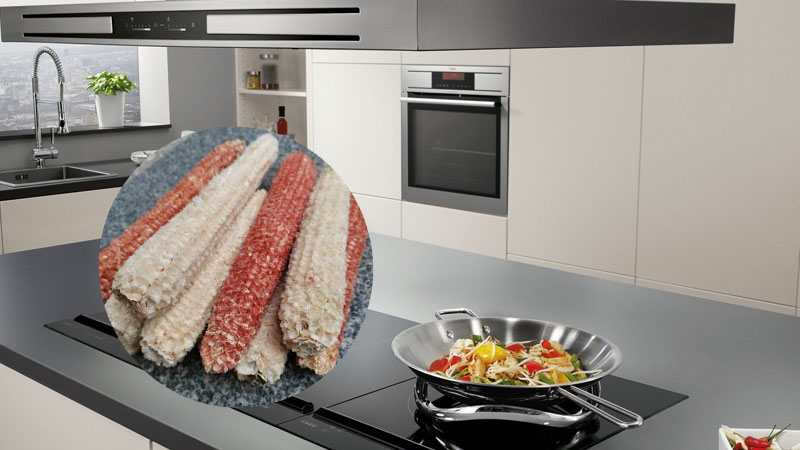 Corn cobs help absorb kitchen odors
Corn cobs help absorb kitchen odors
2 Deodorize the Bathroom
The bathroom is often the dampest area in the house, providing an ideal environment for bacteria to thrive. Human waste and ammonia odors, if not properly managed, can make the bathroom and shower area quite unpleasant.
In addition to regular cleaning and disinfecting, consider using corn cobs to neutralize odors. Place dried corn cobs in the bathroom or shower area to absorb unwanted smells.
For an added boost, you can also sprinkle some essential oil or perfume on the corn cobs. This dual action will not only eliminate odors but also leave a pleasant fragrance in your bathroom.
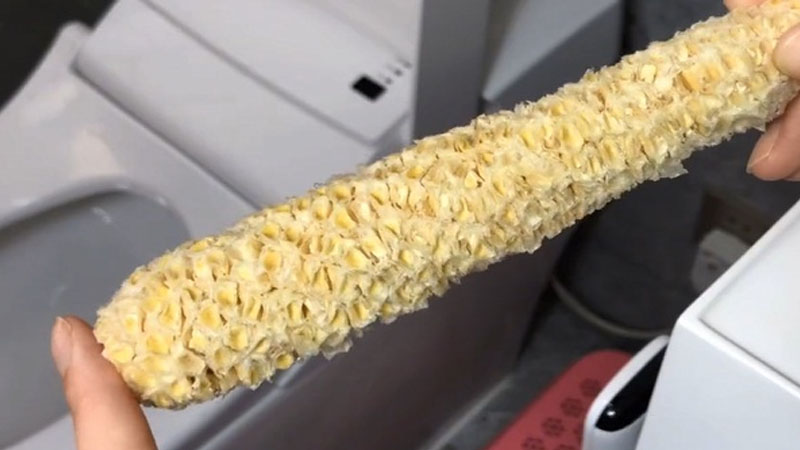 Deodorize the bathroom with corn cobs
Deodorize the bathroom with corn cobs
3 Absorb Formaldehyde
Formaldehyde is a strong-smelling gas commonly found in forest fires, car emissions, and cigarette smoke. It can also be present in newly painted homes. Even at low concentrations (<0.1mg/kg air), formaldehyde can irritate the eyes, causing tears, headaches, sore throat, and difficulty breathing.
Therefore, it’s crucial to ventilate and purify the air in new homes before moving in. Corn cobs are excellent at absorbing gases, including formaldehyde. Place dried corn cobs in a new house for about two weeks to eliminate any lingering odors and potential health hazards.
 Absorb formaldehyde in new homes
Absorb formaldehyde in new homes
4 Plant Flowers
Corn cobs can be used as a natural and effective growing medium for flowers. They help aerate the soil, preventing it from becoming compacted, which is essential for healthy root growth. To use corn cobs for this purpose, dry and cut them into small pieces. Then, line the bottom of your flower pots with a layer of corn cobs before adding soil.
This method ensures that the soil drains well after watering, preventing waterlogging and root rot. It also inhibits bacterial growth, promoting healthier and more vibrant flowers.
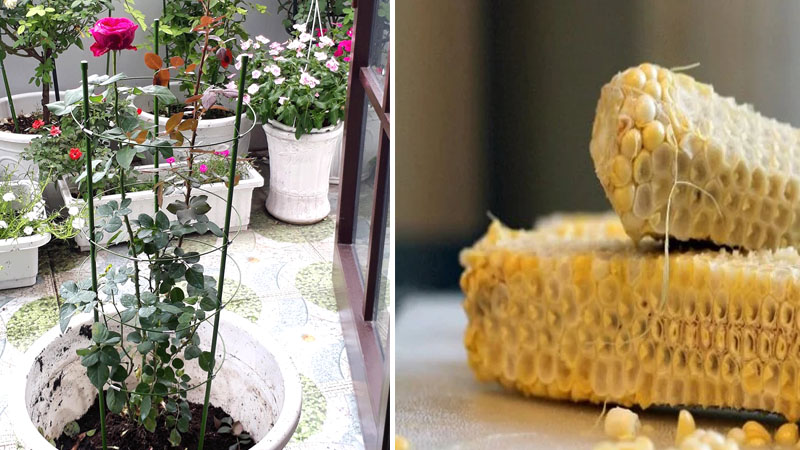 Plant flowers using corn cobs
Plant flowers using corn cobs
5 Grow Mushrooms
With the help of corn cobs, you can grow delicious and healthy mushrooms at home. First, dry and grind the corn cobs, then mix them with gypsum, wheat bran, and limewater. Allow the mixture to ferment, and then place it in a bag with mushroom spores. Keep the bag in a cool, dark, and humid place, such as a refrigerator, and you’ll soon have a bountiful harvest of fresh mushrooms.
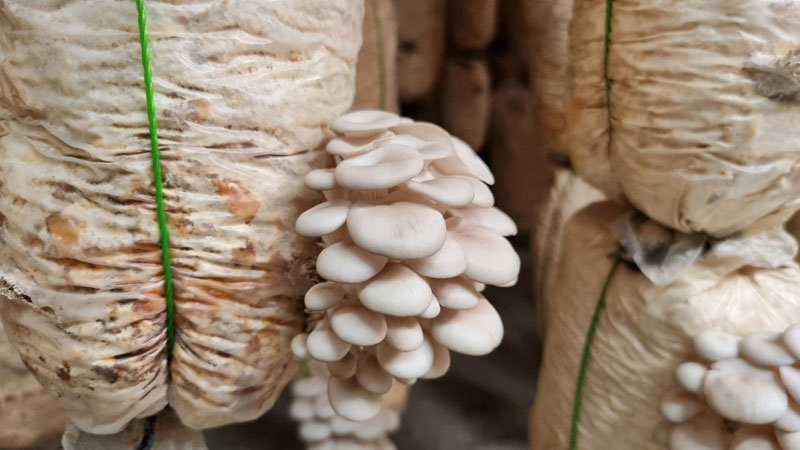 Grow mushrooms with corn cobs
Grow mushrooms with corn cobs
6 Make Soup or Tea
Did you know that corn cobs can be used to make a delicious and healthy tea or soup? Drinking corn cob tea or adding it to your soups provides a sweet and unique flavor. Simply dry the corn cobs and use them in your tea or soup recipes.
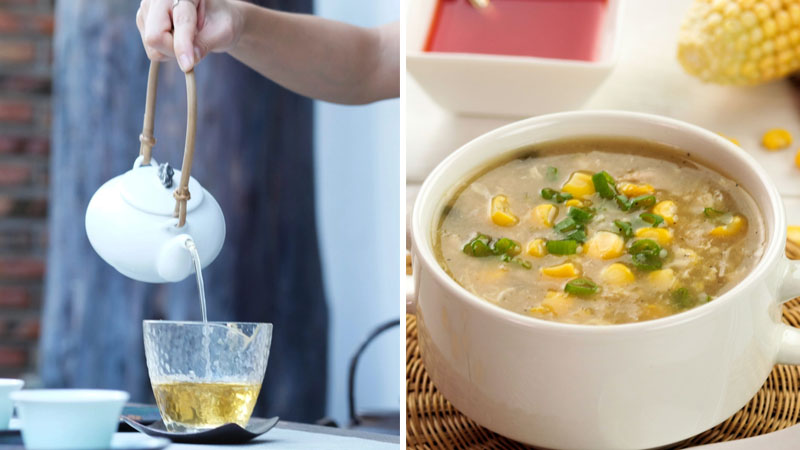 Make tea or soup with corn cobs
Make tea or soup with corn cobs
7 Scrub the Sink
Take a dried corn cob and attach it to a stick or handle for ease of use. You can now use this natural scrubber to clean your sink thoroughly. It effectively removes stubborn stains and leaves your sink sparkling clean without the need for harsh chemicals.
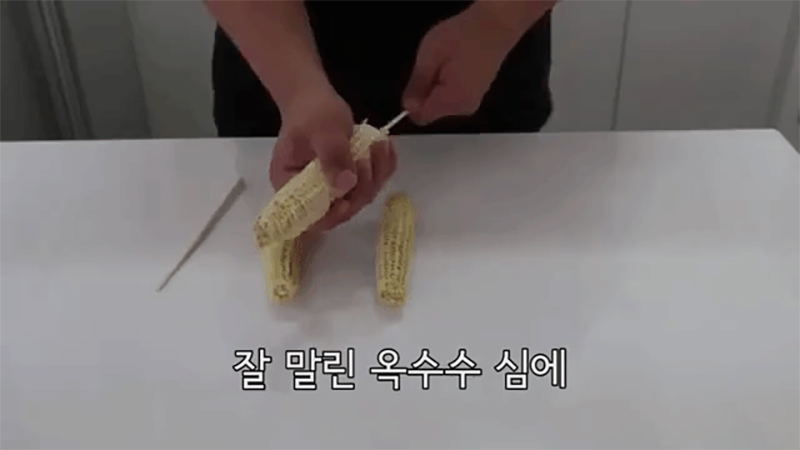 Use a corn cob to scrub the sink
Use a corn cob to scrub the sink
The corn cob is also handy for cleaning the sink filter, which can be challenging to access with your hands.
8 Clean the Drain Cover
Use a dried corn cob to clean the drain cover in your bathroom or kitchen. Attach the corn cob to a stick and scrub away any hair, dirt, or debris that has accumulated on the cover. It’s a natural and effective way to keep your drains clear and clean.
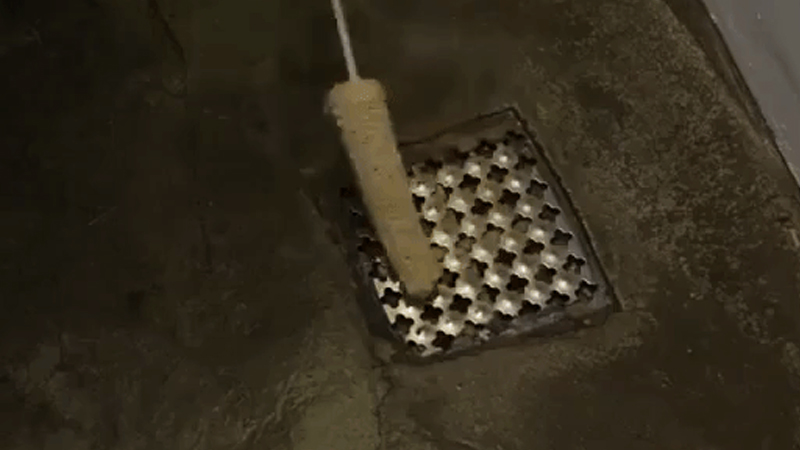 Clean the drain cover with a corn cob
Clean the drain cover with a corn cob
After cleaning, simply dispose of the corn cob in the trash.
There you have it! These surprising uses for corn cobs showcase their versatility and potential for reducing waste. Give these tips a try, and you’ll be amazed at the results. Happy cobbing!
Use Tea Bags to Get Rid of Odors and Grease in an Oil-Free Fryer
Is your air fryer emitting foul odors and filled with grease? Discover the simple solution to cleaning your oil-free fryer using tea bags!


























